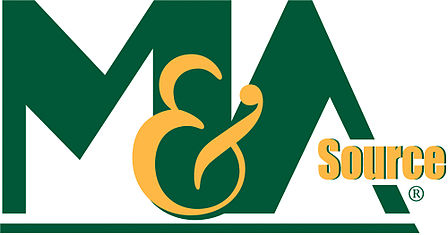style=”display:inline-block;width:728px;height:90px”
data-ad-client=”ca-pub-3299921071151129″
data-ad-slot=”2102069697″>
 By Tom Jackson
By Tom Jackson
@DisruptAfrica
South Africa Mergers, acquisitions, infrastructure sharing and market liberalisation will reshape Africa’s telecommunications markets by 2018, according to market analysts Frost & Sullivan. In its forecast on the industry across the continent for the next four years, Frost & Sullivan said the liberalisation of the industry would pave the way for infrastructure sharing and new market entrants that would tap into new markets or strategically acquire a company.
“Communication markets will become more liberal, especially in countries where governments understand the correlation between Information and Communications Technologies (ICT) development and economic growth,” said Frost & Sullivan ICT Industry Analyst Naila Govan-Vassen. “This will drive infrastructure sharingagreements, which are expected to take place as a measure to bring down investment costs and increase reach away from urban areas. With this, new market entrants will emerge in Africa, which will either tap into unexplored markets – for example, the case of Movitel in Mozambique – or strategically acquire a company.”
The company also predicts that the entrance of international submarine cables will cause investments in last mile infrastructure to increase, with even landlocked countries such as Uganda, Rwanda and Botswana beginning to benefit from the submarine cables and decreasing their dependency on satellites. Frost & Sullivan also noted the growing impact of mobile banking and payments in Africa, while other sectors are also integrating with communications, such as education, health, agriculture and governance. “Mobile Network Operators (MNOs) are expected to expand services beyond the traditional core business by strategically entering the digital space such as e-commerce,” Govan-Vassen said.
“The African continent also presents huge opportunities for e-commerce. With the market still unexplored, it is estimated to reach US$50 billion by 2018, compared to just over US$8 billion in 2013.” However, when compared to mobile, the fixed line market, the company said, is controlled by state-owned companies with limited funds for infrastructure development and investments. “Lack of competition within the fixed line market has resulted in little motivation to improve services, and customers therefore choose to communicate through mobile devices rather than fixed line modes,” Govan-Vassen said. Tanzania, Ghana and South Africa were picked out as exceptions, where two national operators exist.
FRENCH VERSION
Afrique du Sud fusions, acquisitions, libéralisation marché et de partage d’infrastructure retravaillerons les marchés des télécommunications de l’Afrique en 2018, selon les analystes de marché Frost & Sullivan. Dans ses prévisions sur l’industrie à travers le continent pour les quatre prochaines années, Frost & Sullivan dit que la libéralisation de l’industrie ouvrirait la voie pour le partage d’infrastructures et de nouveaux arrivants sur le marché qui pourraient ouvrir de nouveaux marchés ou stratégiquement acquérir une entreprise. « Les marchés de communication deviendra plus libérales, notamment dans les pays où les gouvernements comprennent la corrélation entre le développement d’Information et des Communications (TIC) et la croissance économique », a déclaré Frost & Sullivan TIC industrie analyste Naila Govan-Vassen. “Cela conduira infrastructure sharingagreements, qui devraient se dérouler comme une mesure visant à faire baisser les coûts d’investissement et augmentation atteindre loin des zones urbaines. Avec cela, nouveaux venus sur le marché verront le jour en Afrique, qui va ouvrir les marchés inexplorés – par exemple, le cas de Movitel au Mozambique – ou stratégiquement acquérir une entreprise. » La société prévoit également que l’entrée de câbles sous-marins internationaux provoquera des investissements dans les infrastructures de mile dernier à augmenter, même sans littoral pays comme l’Ouganda, le Rwanda et Botswana commence à tirer les câbles sous-marins et de diminuer leur dépendance sur les satellites. Gel & Sullivan a également noté l’impact croissant des services bancaires mobiles et des paiements en Afrique, tandis que les autres secteurs sont également intégrer avec communications, tels que l’éducation, la santé, l’agriculture et la gouvernance. “Les opérateurs de réseau Mobile (ORM) devraient pour étendre les services au-delà des métiers traditionnels en entrant stratégiquement l’espace numérique comme le commerce électronique”, a déclaré Govan-Vassen. “Le continent africain présente aussi des possibilités énormes pour le commerce électronique. Avec le marché encore inexploré, on estime à atteindre US$ 50 milliards en 2018, comparée à un peu plus d’US$ 8 milliards en 2013. » Toutefois, par rapport à mobile, le marché de la ligne fixe, a indiqué la compagnie, est contrôlé par des entreprises publiques avec des fonds limités pour le développement des infrastructures et des investissements. « Manque de concurrence dans le marché de la ligne fixe a entraîné peu de motivation pour améliorer les services et les clients donc choisir de communiquer par le biais de périphériques mobiles plutôt que fixes ligne modes, » Govan-Vassen dit. Afrique du Sud, le Ghana et la Tanzanie ont été repérés en tant qu’exceptions, où les deux opérateurs nationaux existent.
style=”display:inline-block;width:728px;height:90px”
data-ad-client=”ca-pub-3299921071151129″
data-ad-slot=”2102069697″>


